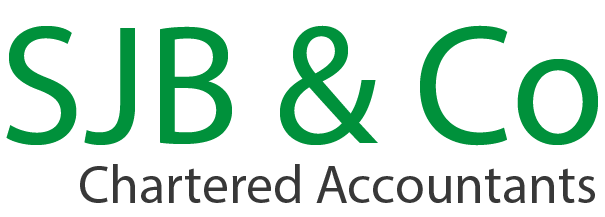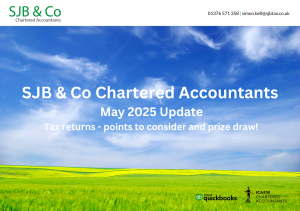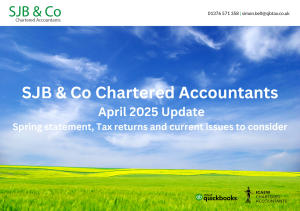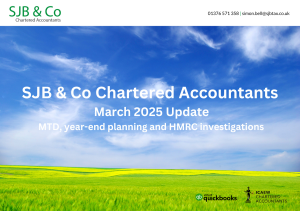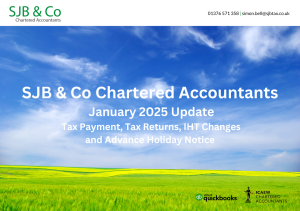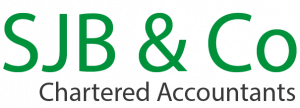Now that we are two months beyond the end of the tax year, it is time to start preparing tax returns for last year as most details should be available from employers, banks and brokers. So why not make the most of your time whilst travel and social activities are restricted and get ahead with your tax return? You may even find that you are due a refund or at least will know your liabilities earlier and can plan for them.
The Self assessment tax return deadline for paper returns is 31 October and 31 January 2021 for online filing. Clients are asked to forward their details as soon as available so that we can complete returns and advise tax liabilities at an early date.
We are continuing to operate as far as possible as normal whilst complying with social distancing guidelines. The easiest way to send documents may be by email, if scanning documents please scan to PDF if at all possible as these are easier to read and print – there are a number of free apps that can be downloaded to mobile phones to scan papers to PDF including Office Lens . Papers can be posted or delivered to us, if visiting please put through the letter box or phone to ensure someone is here to take in larger items – we shall generally place all post and delivered papers in quarantine for a few days so please bear this in mind for turnaround time.
Points to remember when completing tax returns
Income
Make sure you include all sources of income and capital gains. HMRC are increasingly identifying omissions in returns and are increasingly likely to seek penalties and interest where additional tax becomes due. Points to remember are likely to include:
- For earnings, a P60 certificate of earnings should be issued by the end of May and if you receive any benefits, you should receive a form P11D detailing the value of all benefits received which will need reporting;
- Members of employee share schemes should ensure they receive full details of what to report from their employer.
- Interest on all bank accounts and dividends from shares should be included on your return;
- Dividend income outside of ISAs should be reported, where dividends exceed £2,000 there will a charge to tax of 7.5% for basic rate tax payers, 32.5% for higher rate tax payers and 38.1% for additional rate tax payers.
- Rental income will need reporting, even if you are not making a profit it needs to be reported and a record of losses kept. It should be noted only the interest element of mortgage payments are deductible and an interest certificate should be obtained.
- If child benefit has been claimed and the income of either partner exceeds £50,000 this will need reporting and the higher income child benefit charge will apply.Deductions
Deductions
- Pension contributions – following recent rule changes contributions to all pension schemes and the increase in value of interests in final salary pension schemes need to be considered, if the total amount for any year exceeds the annual allowance then this may need to be reported on your tax return and a tax charge may arise. Members of final salary schemes should receive a letter from their scheme administrator advising them of the change in value of their pension rights and it is this information that will be required.
Individuals whose adjusted total income exceeds £150,000 should be aware that the pensions annual allowance will reduce by £1 of each additional £2 of income with the annual allowance limited to £10,000 once income reaches £210,000
- Higher rate tax payers paying personal pension contributions need to claim the additional tax relief through their tax return.
- Remember to include all gift aid payments to claim higher rate tax relief – this can include membership of the National Trust and similar organisations if gift aid declarations have been made.
- Employees who are paid less than the authorised mileage rates for business mileage can claim the difference between the amount received and the authorised rates – 45p per mile for the first 10,000 miles and 25p per mile thereafter via their tax return.
- Employees who pay their own professional subscriptions should claim the cost by including the cost on their tax return.
- investors in enterprise investment schemes and venture capital trusts will need to claim tax relief for the investments through their tax returns once they receive the appropriate tax certificate from HMRC.
- Marriage allowance – married couples can apply to transfer a proportion of their personal allowance between them, if your income is less than the personal allowance and your spouse is a basic rate tax payer you can apply to transfer 10% of your personal allowance, for 2019/20, this amounts to £1,250 and is worth £250.Capital Gains
Capital Gains
- Capital gains should be reported where the chargeable gain is expected to exceed the annual exemption (£12,000) or the proceeds exceed four times the annual exemption (£48,000).
- Transfers between spouses are generally exempt, however transfers to most close relatives other than spouses will be deemed to be connected party transactions taking place at market value. It is therefore possible for a capital gain to arise when a gift is made: for example: — if a parent gives a property to a child, there will be a capital gain to the extent that the market value of the property at the date of the gift exceeds the original cost.
- Capital gains can arise on the disposal of most assets, however there are some exemptions including: motorcars, personal effects and goods worth up to £6000 each, UK government stocks (gilts), assets held within an individual savings account, foreign currency for personal use and an individual’s principal private residence.
- If assets sold were held at 31 March 1982, then you can claim to use the market value at this date rather than original cost. Time should be allowed for obtaining a professional valuation, so that returns can be completed in good time.
- Where valuations are required to calculate the capital gain, it is possible to submit the valuations to HMRC for agreement in advance by submitting the form CG 34 to avoid subsequent enquiries and dispute.
If a capital gain has risen in the last tax year, there may still be scope for planning to shelter the capital gain, as capital gains can be deferred against investment in enterprise investment schemes undertaken in the 36 months following the disposal giving rise to the capital gain. Alternatively, if an individual has investments which have become of negligible value, then a claim can be made to treat the asset as disposed of to crystallise the loss and this can be effectively backdated up to 2 years. Ideally, we would recommend people consider their capital gains tax position prior to disposing of assets to maximise the opportunities for planning and we would be happy to assist clients with this.
Email scams alert!
An increased number of email scams are being reported. Typically an email will purport to come from HMRC advising that a refund is due and requesting bank account information to enable a repayment to be made. All such emails should be regarded as scams and any links in such emails to websites not followed. HMRC should never contact tax payers by email requesting bank details, such emails should be deleted and can be reported to HMRC by forwarding to: [email protected] further details can be found at: http://www.hmrc.gov.uk/security/examples.htm
For more information or to discuss any issues raised above please contact Simon Bell by phone on 01376 571358 or email [email protected].
Please feel free to forward this newsletter to any colleagues or friends who may be interested in it.
This newsletter is written in general terms and therefore cannot be relied on to cover specific situations; applications of the principles set out will depend on the particular circumstances involved and it is recommended that you take professional advice before acting or refraining from acting on any material in the newsletter.
